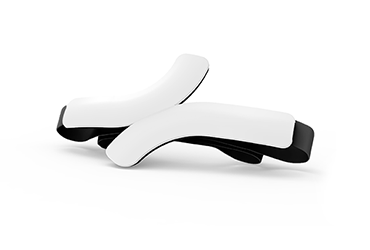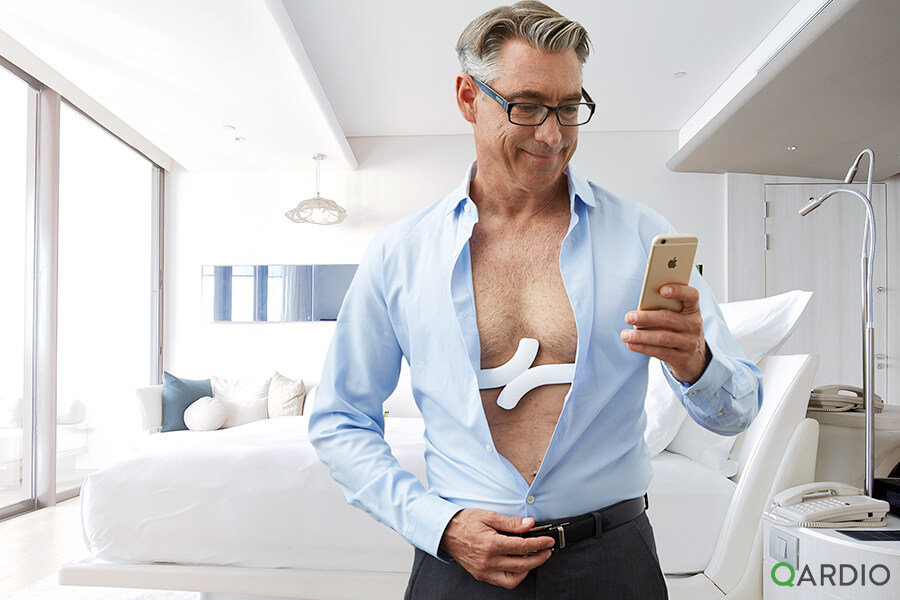If you have ever been tested for a possible cardiac condition, you have probably come across some type of heart monitor. Learn what these monitors do and how they each differ from each other.
What is a heart monitor?
A heart monitor, also known as a cardiac monitor, is a device that allows for the continuous monitoring of the heart’s activity through electrocardiography (ECG/EKG). Outside of the doctor’s office, heart monitoring is done with an ambulatory cardiac monitor that a patient will wear home with them. This allows for a doctor to observe how their patient’s heart is functioning over an extended period of time in order to diagnose conditions related to irregular cardiac rhythms.
Make sure to read our article ”How does ECG/EKG work and what is an ECG/EKG monitor?” to learn more.
What is a cardiac event?
A cardiac event refers to any instance of irregularity related to the heart, and is typically used to refer to those which are most severe, such as cardiac arrest (heart attack), stroke, or a heart arrhythmia such as atrial fibrillation.
Do you know what heart arrhythmia or atrial fibrillation are? Make sure to check our articles ”Let’s talk about (abnormal) heart rhythm” and ”Atrial fibrillation from A to Z” to learn more.
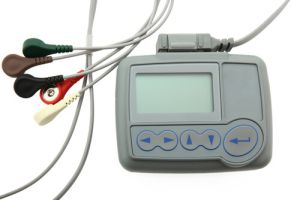 What is a Holter monitor and what does it do?
What is a Holter monitor and what does it do?
The traditionally used ambulatory heart monitor is called a Holter monitor. A Holter monitor is a battery-operated portable device that measures and records heart activity (electrocardiogram or ECG) continuously for several days. A doctor might ask his patient to wear a Holter monitor continuously for 24 to 48 hours or longer to screen for a cardiac event such as atrial fibrillation or a suspected stroke.
Why might I need a Holter monitor?
Some patients with heart conditions might be required to wear a Holter monitor. Healthcare providers use these devices to evaluate other signs and symptoms that may be heart-related, such as fainting, irregular rhythm (arrhythmia), shortness of breath, dizziness, or tiredness.
Most patients first need to get an ECG scan before needing a Holter monitor. Since ECG scans are done in a short period of time, they cannot detect any changes in your heart rhythm. Holter monitors, on the other hand, are connected for 24 or even 48 hours and have more chance to detect any irregularities in your heart beat.
What is an event monitor?
An event monitor and a Holter monitor are similar in that they are used to remotely record heart irregularities to aid in the diagnosis of cardiac conditions by measuring the heart’s electrical activity. However, an event monitor does not record the heart’s ECG continuously. The recording is initiated by the user, usually when the patient is experiencing symptoms. This is the main disadvantage of an event record over a continuous ECG monitor, as it does not capture events that occur without symptoms. This has the potential to lead to a missed diagnosis.
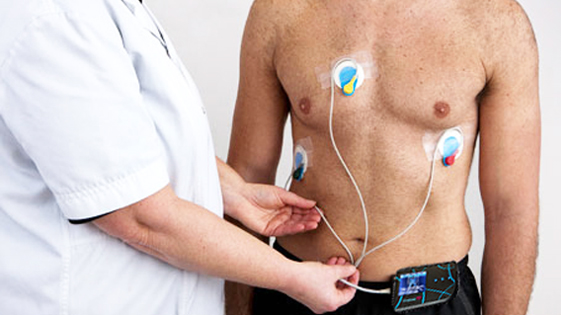 What is the difference between an event monitor and a Holter monitor? Which one is better?
What is the difference between an event monitor and a Holter monitor? Which one is better?
A Holter monitor records the heart’s behaviour continuously whereas event recorder records short periods only and the start of the recording must be initiated by the user. For that reason, an event recorder is considered less effective as many heart problems are without symptoms and occur sporadically. If the user is not experiencing any symptoms, these might be missed with an event recorder.
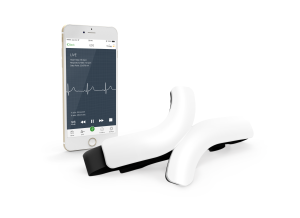 While a Holter monitor will provide a more complete picture of heart activity necessary for the diagnosis of cardiac conditions, there are still quite a few disadvantages. Holter monitors are typically found to be cumbersome and uncomfortable, requiring skin preparation, patches, and wires. We have created a better alternative for continuous heart monitoring in QardioCore, wireless medical-grade ECG monitor.
While a Holter monitor will provide a more complete picture of heart activity necessary for the diagnosis of cardiac conditions, there are still quite a few disadvantages. Holter monitors are typically found to be cumbersome and uncomfortable, requiring skin preparation, patches, and wires. We have created a better alternative for continuous heart monitoring in QardioCore, wireless medical-grade ECG monitor.
Sources:
Mayo Clinic


